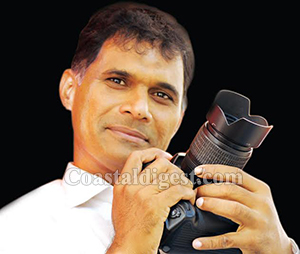Kannur, Jan 23: A member of Rashtriya Swayamsevak Sangh has been arrested for attempting to create unrest in Kerala by hurling crude bombs at RSS office and police picket. The miscreants had reportedly planned to pass the blame on others.
The bomb attack took place of January 16 in Kerala’s Kannur. The accused Prabesh, an RSS hardliner, was arrested from Coimbatore, Tamil Nadu.
According to the Kerala police Prabesh hurled steel bombs towards the police picket in front of Kathirur Manoj Smrithi Kendram, an RSS office.
"He threw bombs during the wee hours of January 16 morning. Following the arrest he has confessed that his aim was RSS office. Kannur, being politically sensitive region, any attack on political party offices will be regarded as an act by the opponent," Kathirur SI Nijeesh said.
"We had a police picket in the region for a few months now. We are assuming he wanted to create unrest in the area by removing the police from the spot. We could contain the situation because of the CCTV visuals. He was identified immediately after the incident. Following the attack he went to Coimbatore and was hiding there. Our team nabbed him from Coimbatore," he said.
The police have also said that the accused Prabesh had many criminal cases pending against him including those under Explosive Substances Act, 1883. He was nabbed by a team lead by Kathirur SI Nijeesh, CPO Rohith and Vijeesh.
The RSS office in the region is named after Kathirur Manoj a senior karyakarta (worker) who was allegedly killed by the CPI(M) activists in 2014. Kathirur Manoj was the prime accused in the attempt to murder of senior CPI(M) leader P Jayarajan in 1999.
 Mangaluru, Aug 12: Poet, writer and photographer Ahmed Anwar has been chosen for Shaykh Ahmad Sirhindi award instituted by city based Universal Welfare Forum (Uniwef).
Mangaluru, Aug 12: Poet, writer and photographer Ahmed Anwar has been chosen for Shaykh Ahmad Sirhindi award instituted by city based Universal Welfare Forum (Uniwef).




Comments
Award by name \Sheikh Ahmad Sirhindi\" very few know about this great person. He has taken the initiative to bring back Tawheed during Akber and Jahangir emperor. An eye opener speech by Br. Rafiuddin Kudroli during Independence celebration and award ceremony programme has impressed the audience."
Award by name \Sheikh Ahmad Sirhindi\" very few people know about this great person. His determination and sacrifice kept alive Tawheed during Akber and Jahangir emperor and brought back Tawheed in India. During Independence day celebration and award ceremony Br. Rafiuddin Kudroli very nicely explained the importance of this award."
Congratulations Anwar Bhai, Great photographer and good human.
Masha Allah... Barakallah fi...May Allah give good health and fulfill your dreams.
Congrats!!!!
May Allah bless with many more
Congratulations. We are proud of you
congrats Anwar Bhai
Add new comment